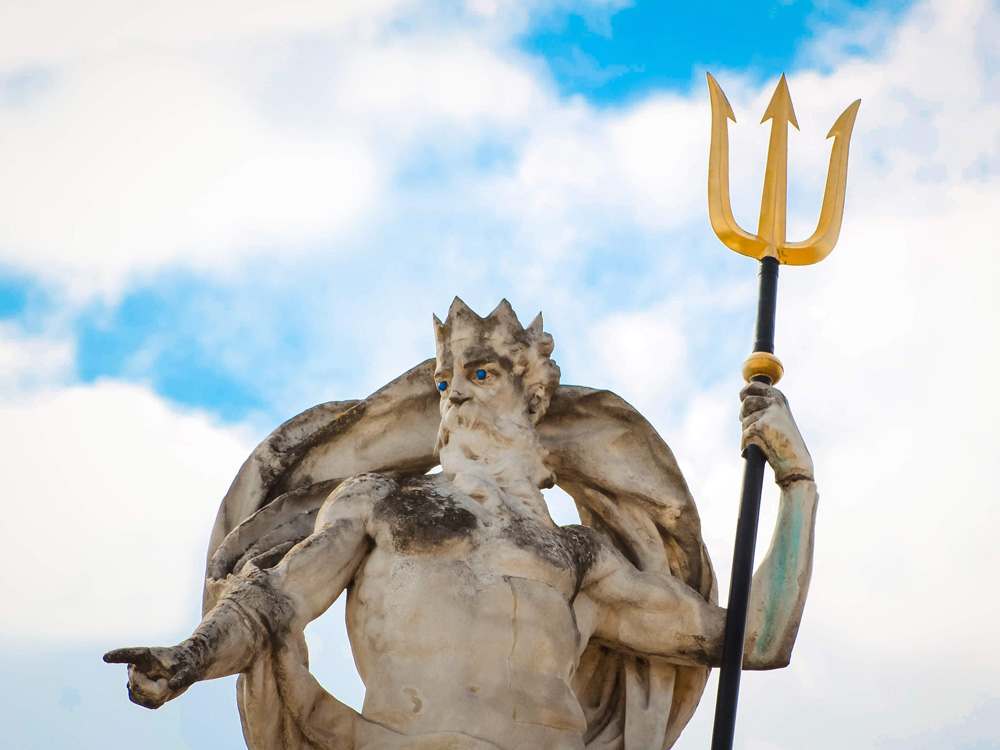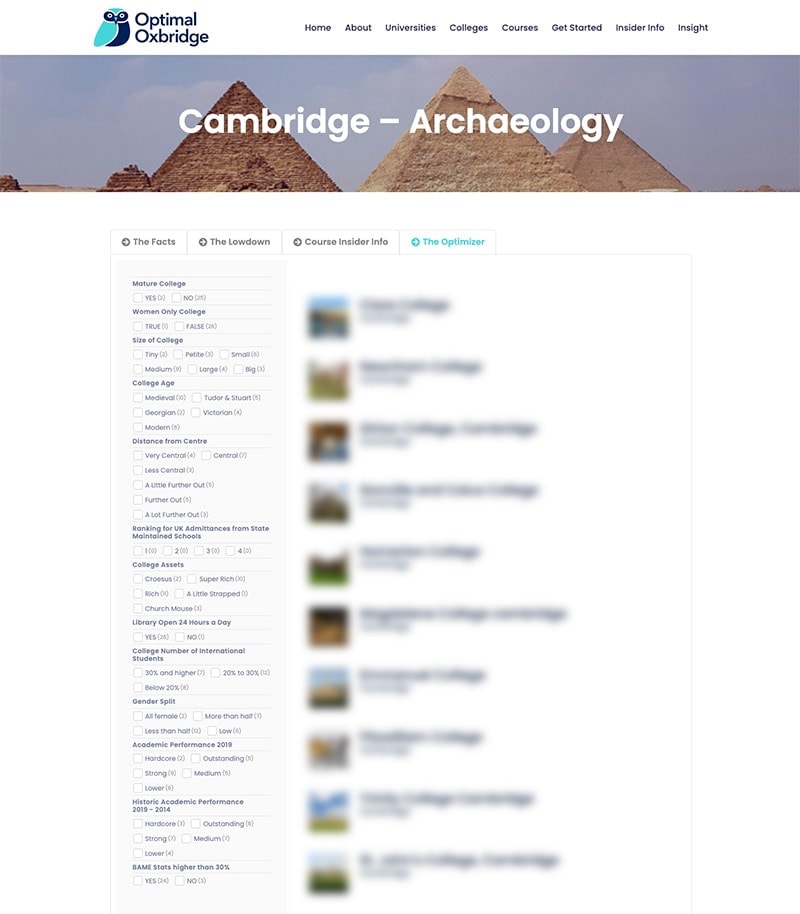Subscribe for full access to insider info and the optimizer.
Unlock access to the Optimizer and Insider Info
Let our optimizer help you find your college match faster. We’ll screen out the bad fits so that you can review the schools you’ll like best. Who knows? You might find a college you never knew existed.
The Facts
UCAS Code:
Q800 (3 year course) Q801 (4 year course)
Standard Requirements:
A levels| A*AA
IB | 40-42, 776 in HL
For other qualifications, check the Cambridge University website.
Required Subjects:
3 year course - Latin (Greek may be accepted as a substitute at Christ's, Churchill, Clare, Corpus, Gonville & Caius, Hughe Hall, Lucy Cavendish, Murray Edwards, Pembroke, Peterhouse, St John's, Sidney Sussex and Trinity Hall).
Advisable Subjects:
None stated by the university.
History, English (Language or Literature), Classical Civilisation, A Language (Ancient or Modern) and History.
Two pieces of work to be submitted
91. 3 years - 60 (48% accepted). 4 years - 31 (43% accepted)

The Lowdown
The Classics course offers you the option to mix and match a variety of areas of classical studies, from history and anthropology to theology and languages. There are two courses available – a three-year course (available to those who have taken Latin A-Level (or equivalent), with an inclusive Greek module for those without Greek A-Level) and a four-year option (including a foundation year studying Latin for those without the above). Thus, Greek and/or Latin A-Level (or equivalent) is recommended; other useful subjects to consider include Classical Civilisation, English, History, or languages.
This course is certainly demanding, but the resources here are worth it – Cambridge boasts its own Museum of Classical Archaeology and regular Greek Plays (in Ancient Greek), as well as an extensive library. Classics also has one of the university’s highest acceptance rates, with an over 50% acceptance rate over the past few years. It also has a predominantly female cohort.
In the preliminary year, which you only do on the 4 year course, you study Latin and the culture surrounding it through a combination of language classes and essays. You will also get a head start on learning Ancient Greek.
In year 1, students will examine seminal ancient texts in Greek and Latin such as Plato and Virgil, and elements of Roman and Greek culture and philosophy. You will receive a combination of language classes and lectures to build your practical and theoretical understanding.
Your second year is composed of two mandatory papers (Greek/Latin translation) and then there are optional papers from a selection of literature and culture-based modules – history, philosophy, art/archaeology, and philology. You may decide to take papers on writing in Greek or Latin if you wish to become more confident with the language.
In your final year, you have complete freedom. You might choose to focus on a particular area or choose options that cover all of your preferences. These options will cover areas of Roman and Greek literature, philosophy, history, archaeology and language. You even have the option to take a paper in a parallel degree course.
You will mostly be assessed through examinations, though you can replace one paper with a dissertation, which allows you to write about your favourite Classics subject. This degree combines the best qualities from language, literature, history, and philosophy courses. Consequently, the skills and abilities developed reading Classics apply to many future careers, including academia, archive work, law, finance, and the arts sector.
Unlock Insider Info
Get insider intel about how to increase your chances of being offered a place, plus access interviews tips and special questions.
The Optimizer
Unlock access to the optimizer
Let our optimizer help you find your college match faster. We’ll screen out the bad fits so that you can review the schools you’ll like best. Who knows? You might find a college you never knew existed.

